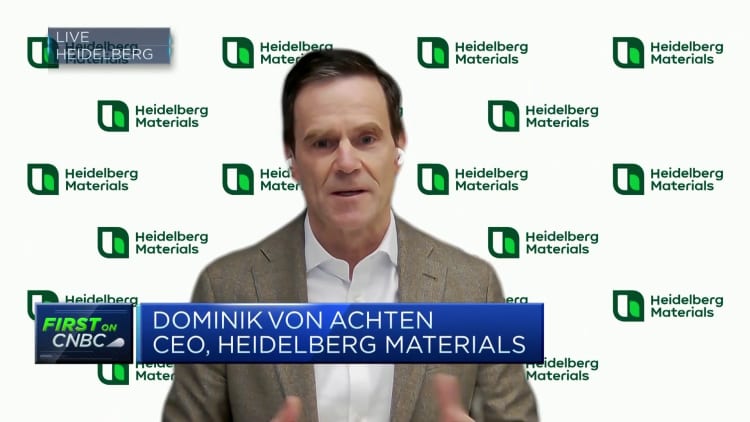
Construction site of a residential building with scaffolding and large cranes
Fhm | Moment | Getty Images
The German construction sector is showing no signs of recovering, even after being in a crisis for months and despite pledges of support and investment from the government.
Recent economic data shows the industry is still in a “dismal situation,” Carsten Brzeski, global head of macro research and chief economist for Germany at ING, told CNBC.
Permits for newbuilds dropped 24.2% in May compared to the same month last year, and declined nearly 40% compared to May in 2022, according to the latest building permit figures published last week.
The data shows that between January and May of this year, permits for single-family homes fell over 31%, and those for multi-family houses declined over 21% compared to the same time period last year.
Felix Pakleppa, head of the Central Association of the German Construction Industry, noted the bleak outlook for the sector.
“Building permits in Germany continue to only know one direction: downwards,” he said, pointing to the data, which has not reflected growth since April 2022.
Housebuilding typically takes around two years from when the permit is issued to the final stages, so the lack of permits now will continue to have an impact, he said.
“You don’t need a statistics degree to realise that Germany is sliding into a deep housebuilding crisis,” Pakleppa said in a statement released last week that was translated by CNBC.
Long-term issues
Germany’s housebuilding and construction industry has been struggling for some time, with sentiment and expectations for the industry hitting all-time lows earlier this year. Wider economic trends such as inflation and elevated interest rates have been weighing hard on the sector.
The underlying causes of the decline in permits have not yet eased and aren’t likely to do so anytime soon, Brzeski said. Interest rates are unlikely to ease significantly and issues such as construction costs and a labor shortage are persisting, he added.

Klaus Wohlrabe, head of surveys at the Ifo Institute for Economic Research, agreed that the lack of orders is expected to continue for some time. High costs for private households to build homes remains the “fundamental problem,” he said.
Government pledges of support
The German government made pledges in its 2025 budget to boost investment for the sector and get more houses built. Key points include funding to increase affordable, social housing and financial support for private households building climate neutral homes.
But so far, the government’s approach has shown “very little impact,” ING’s Brzeski said, adding that the new measures don’t appear much more promising.
“The new measures again go into the right direction but are currently still too small in size to be a real gamechanger,” he said.
Increased government spending and temporary measures to boost the sector, such as tax cuts or lower transaction costs, are required to really make a difference, Brzeski said.
The government’s pledges are also, for now, just that: pledges, Wohlrabe argued, as uncertainty remains about how they would become reality. This leaves companies with little basis for future planning, especially as measures tied to the budget would likely only be applicable for one year rather than long-term, he explained.
“Generally, the sentiment among companies is very bad. It might improve slightly, but the valley is deep,” Wohlrabe said.







